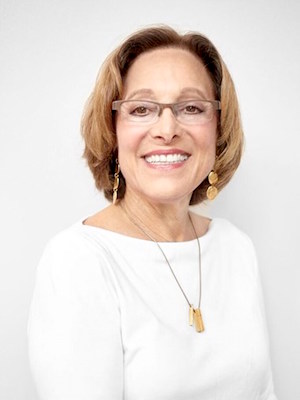
Starting your own business is a lofty dream for many. Parents wonder if their kids could be the next Mark Zuckerberg or Evan Spiegal. But who becomes a successful entrepreneur? Is it anything parents have control over as their kids grow up?
Many headlines offer recipes on how parents can mold their children into entrepreneurs; and recommend specific steps to take. But I’ve discovered a very different approach.
You don’t want to make your children entrepreneurs. You want them to develop naturally, to be who they are. Don’t make your children become kidpreneurs if they don’t want to. Don’t negotiate fees for activities you think they should do. Don’t send them to entrepreneur camp if it’s not their thing. And don’t worry if they don’t seem to be natural leaders.
I learned these insights while researching a book I wrote, Raising an Entrepreneur: 10 Rules for Nurturing Risk Takers, Problem Solvers, and Change Makers.
I conducted interviews with 60 successful entrepreneurs and their parents about how they were raised. The group was diverse: half men, half women; from every socioeconomic group and family type. And despite coming from extremely different backgrounds, in many ways they were raised the same.
Nurture their intrinsic passions
So what should you do? Start by listening to your kids. Figure out what they love—playing sports, writing music, drawing, acting, filming, running for school office, playing chess, singing, dancing, playing computer games, writing stories, volunteering at nonprofits, starting a little company, fixing broken things, making things in shop class, organizing protests. If that’s their passion, then it could be their true calling in life.

If you encourage your kids to pursue their interests with all they’ve got, they will. They’ll work hard at it because they love it. They’ll become good at it because they’re working hard at it. And they’ll develop confidence because they’re excelling at something they love, that they chose. Not something that somebody else thinks they ought to pursue to get into the right school or the right career.
Something great is much likelier to happen when kids really care about what they’re doing. They are excited to jump out of bed every day. Isn’t that true of all of us?
Many entrepreneurs translated what they learned by following their passion as kids into a future endeavor.
-
Joel Holland made films when he was young. His company Video Blocks is the top subscription-based stock footage firm in the world.
-
Alexis Jones loved story telling. She started I Am That Girl, a massive online community for the women’s movement.
-
Kevin Plank started a T-shirt company in high school. He founded multi billion-dollar athletic apparel maker Under Armour.
-
Nyla Rodgers did a lot of service projects when she was young. She started Mama Hope, which has established health, education, and agriculture projects around Africa.
-
Hooman Radfar’s mom supported his passion for computers. He’s a cofounder of startup studio Expa.
-
Robert Stephens liked to fix things. He started Geek Squad.
-
Paige Mycoskie liked to draw. She started lifestyle brand Aviator Nation, with fun designs on shirts, which now has five stores.
-
Matt Mullenweg’s mother supported his passion for the saxophone and then for computers. He started WordPress, the world’s largest website platform.
Others took the grit and competitive drive they learned when they were young and started a company in a different area when they found the right idea.
-
Simon Isaacs was on the Olympic development team for skiing. He said the grit and determination he learned competing helped him start Fatherly, the top website for dads.
-
Twins Radha and Mikki Agrawal played soccer through college. These serial entrepreneurs started Daybreaker, Thinx, and Wild restaurants.
-
Eric Ryan learned grit from competitive sailing. He co-founded Method products.
-
Reggie Aggarwal learned to compete through debate and running for student office. He started event software firm Cvent.
-
Blake Mycoskie learned grit from playing competitive tennis. He started TOMS shoes.
Stack the odds in their favor
Kids will never be great at something if they don’t work nonstop at it. Furthermore, they will never work nonstop if they don’t love it. If your kids love what they’re doing, they’ll develop drive, determination, focus, and grit, all essential tools to becoming an entrepreneur.
If they get good enough at something, they’ll figure out a way to improve, expand or reinvent it. And that’s how companies get started and grow.
Maybe your child will ride his or her passion all the way and become a successful entrepreneur. Maybe they won’t. There are no guarantees. But the odds are so much better when it’s aligned with what they actually want to do–not with some arbitrary expectation.
So parents, nurture your child’s passion. And watch them blossom. And perhaps become an entrepreneur. But even if they don’t, they’ll be happier, and isn’t that what’s really important?
This article has been edited.
Margot Machol Bisnow is a writer, wife, and mom from Washington, DC. She has a BA in English and an MBA, both from Northwestern, and spent 20 years in government, including as an FTC Commissioner and in the White House as staff director of the President’s Council of Economic Advisers. Margot and her husband Mark have two kids. Austin has written successful pop songs and started a popular LA-based band, Magic Giant. Elliott founded Summit, a noted international conference series for Millennial entrepreneurs, and led the purchase and development of the Powder Mountain ski resort in Utah as a permanent home for the Summit community. Mark was a late-blooming entrepreneur, forming his first company at age 52. If his parents had read a book like this 50 years ago, he might have started sooner. Connect with @MargotBisnow on Twitter.
© YFS Magazine. All Rights Reserved. Copying prohibited. All material is protected by U.S. and international copyright laws. Unauthorized reproduction or distribution of this material is prohibited. Sharing of this material under Attribution-NonCommercial-NoDerivatives 4.0 International terms, listed here, is permitted.




